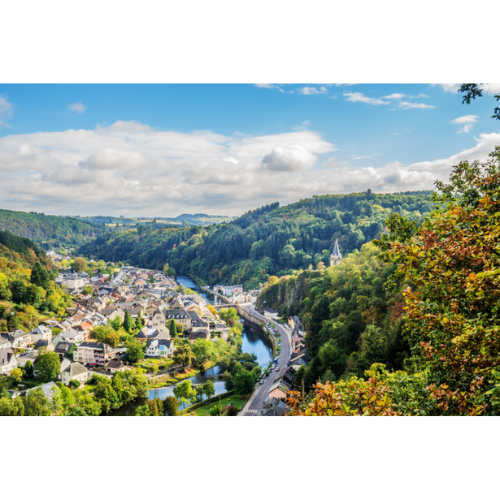Luxembourg: The World’s Richest Country and Why Its Banking Sector Is Booming
With a GDP per capita exceeding $147,000, this small European nation has outpaced economic giants like the United States, Switzerland, and Singapore. But what’s even more remarkable is how Luxembourg is preparing for the future: by doubling down on its financial sector, embracing innovation, and maintaining a stable, open economy.
Looking Ahead: The Future of Luxembourg’s Economy
Luxembourg’s economic trajectory is anything but accidental. As the world shifts toward digital finance, green investment, and AI-driven banking, Luxembourg is positioning itself as a global hub for sustainable and tech-enabled finance.
Key trends shaping Luxembourg’s future:
Green finance leadership: Luxembourg is home to the world’s first Green Exchange, dedicated entirely to sustainable securities. Expect further growth in ESG (Environmental, Social, Governance) investments.
Fintech expansion: The country is actively nurturing startups in blockchain, digital payments, and AI-powered financial services.
Talent magnet: With a multilingual workforce and high quality of life, Luxembourg continues to attract top-tier professionals from across Europe and beyond.
Regulatory innovation: The government is known for agile, transparent regulation — a major draw for international firms seeking stability and clarity.
Why Are There So Many Banks in Luxembourg?
Luxembourg hosts over 155 banks, including branches of the world’s largest financial institutions. But why does this tiny country — with a population of just over 650,000 — attract so many banks?
- Strategic Location
Situated in the heart of Europe, Luxembourg offers easy access to major markets like Germany, France, and Belgium. It’s a logistical sweet spot for pan-European operations. - Political and Economic Stability
Luxembourg boasts one of the most stable political environments in the world. Its AAA credit rating, low public debt, and consistent economic growth make it a safe haven for capital. - Business-Friendly Regulations
The country’s legal framework is tailored to support cross-border banking, investment funds, and wealth management. It offers:
Low corporate tax rates
Flexible fund structures
Strong investor protection laws
- Multilingual Workforce
With English, French, German, and Luxembourgish widely spoken, banks can operate seamlessly across jurisdictions. - Privacy and Trust
Luxembourg has built a reputation for discretion and professionalism. While it complies with EU transparency rules, it still offers a high level of client confidentiality — a key factor for private banking.
Luxembourg’s Economic Profile
| Metric | Value |
|---|---|
| GDP per capita | $147,000+ |
| Population | ~660,000 |
| Number of banks | 155+ |
| Unemployment rate | ~4.5% |
| Main industries | Finance, Tech, Logistics, Steel |
| Currency | Euro (€) |
What Makes Luxembourg’s Wealth So Unique?
Unlike resource-rich nations or manufacturing powerhouses, Luxembourg’s wealth stems from intellectual capital, financial services, and strategic governance.
Diversified Economy
While finance is the backbone, Luxembourg also excels in:
Steel production: Home to ArcelorMittal, the world’s largest steel company.
ICT and digital services: A growing tech sector supported by government incentives.
Logistics and transport: A key player in European freight and air cargo.
Global Investment Hub
Luxembourg is the second-largest investment fund center in the world, after the United States. It manages trillions of euros in assets, making it a magnet for institutional investors.
Tax Efficiency
While not a tax haven, Luxembourg offers competitive tax structures that attract multinational corporations and high-net-worth individuals.

Sustainability and Innovation: The Next Frontier
Luxembourg isn’t resting on its laurels. It’s actively investing in:
Green bonds and sustainable finance
Digital identity and blockchain regulation
AI-driven financial compliance tools
Smart city infrastructure and clean energy
These initiatives ensure that Luxembourg remains relevant — not just as a financial center, but as a model for future-ready economies.
Lessons for Other Countries
Luxembourg’s success offers valuable insights for policymakers and investors worldwide:
Size isn’t everything: Strategic focus and smart regulation can outperform scale.
Invest in human capital: Education, multilingualism, and quality of life attract talent.
Be agile: Responsive governance builds trust and attracts long-term investment.
